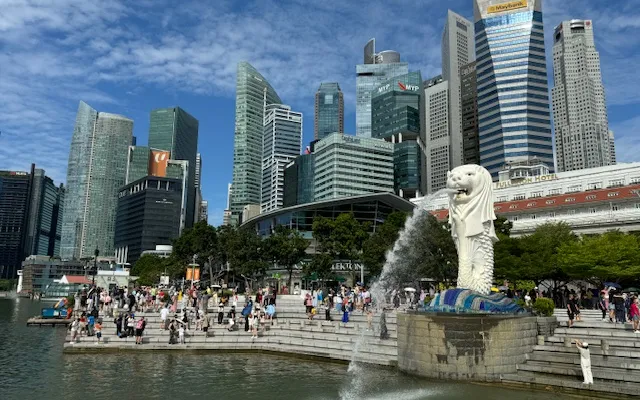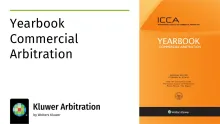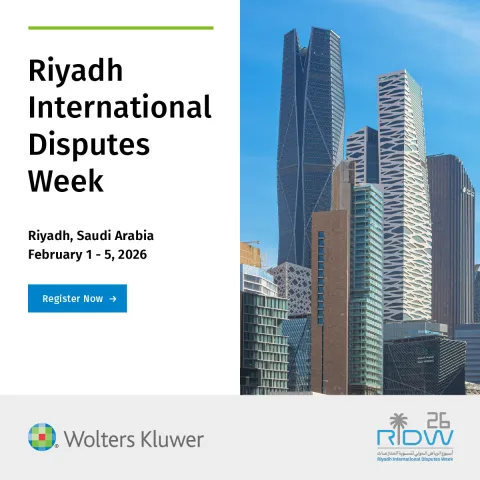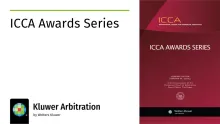Natural Justice and Infra Petita Challenges: Recent Case Law and Potential Law Reform in Singapore
July 29, 2025
Three recent decisions of the Singapore Court of Appeal (“Court”) offer instructive guidance on natural justice and infra petita challenges against arbitral awards. Palm Grove Beach Hotels Pvt Ltd v Hilton Worldwide Manage Ltd and another [2025] SGCA 14 (“Palm Grove”), DJP and others v DJO [2025] SGCA(I) 2 (“DJP v DJO”) and DKT v DKU [2025] SGCA 23 (“DKT v DKU”) demonstrate how the Singapore Courts will intervene to protect the integrity and fairness of the arbitral process, but will not lightly set aside awards for errors of fact or law, or even poor reasoning.
Why did only one application succeed (i.e., DJP v DJO) but the others did not (i.e., Palm Grove and DKT v DKU)? The obvious difference is that the unsuccessful challenges were attempts to attack the merits of the award that were dressed up as allegations of breach of natural justice, whereas the successful challenge went towards the integrity of the arbitral process, in particular the process employed by the tribunal to prepare the award.
We first briefly describe each case, before discussing the key takeaways from the decisions.
Summary of Decisions
In Palm Grove, an arbitration was commenced in relation to a dispute concerning the management of a hotel pursuant to various agreements between the hotel owner and the hotel managers (“Hotel Agreements”). The tribunal heard the arbitration in three tranches and rendered several partial awards. In the second partial award, the tribunal addressed cross-claims for breaches of the Hotel Agreements, allowing the managers’ claims for (amongst others) wrongful suspension of hotel operations and interference with the operation and management of the hotel, while dismissing the owner’s counterclaim for failure to manage the hotel. In the third partial award, the tribunal appointed a budget expert to determine the hotel’s budget for 2023. The hotel owner sought to set aside the two partial awards on the grounds that: (a) the tribunal had adopted an unforeseeable chain of reasoning and/or deprived the parties of an opportunity to be heard; and (b) the tribunal failed to consider certain issues, rendering the award infra petita. The Court declined to set aside the award, emphasizing that infra petita challenges are better rationalized as a breach of natural justice challenge (at [25]–[27]) and that an error in the assessment of evidence is at most an error of fact (at [24] and [48]).
In DJP v DJO, the appellant challenged an arbitral award on the ground that the presiding arbitrator had effectively “copied and pasted” substantial portions of two prior awards (rendered in related, but separate, arbitrations) without presenting that material for consideration to the parties. At first instance, the Singapore International Commercial Court (“SICC”) set aside the award (see discussion on the SICC’s decision here). The Court upheld the SICC’s decision, finding that, by copying and pasting analysis from awards issued in different arbitrations, the impression conveyed to the fair-minded observer would reasonably be that the decision-maker might have been wrongly anchored to the earlier decision in a way that compromised his ability and openness to consider matters afresh (at [74]). The parties and co-arbitrators also never had an opportunity to consider the extraneous materials (i.e., other awards), which breached the fair hearing rule and further compromised the integrity of the arbitration (at [80]–[82]).
In DKT v DKU, the respondent commenced an arbitration against the appellant, alleging that the appellant had improperly billed for unperformed or defective crack repair works. The tribunal found that the appellant had charged the respondent for crack repair works where no repairs were necessary, and rendered an award requiring payment of around $2 million in favour of the respondent. The appellant challenged the award on grounds of breach of natural justice, claiming that key defences and certain alleged errors in the expert’s analysis were not considered. The Court rejected the appellant’s arguments, finding that the tribunal had considered the defences and applied its mind to the expert evidence. The Court took the opportunity to set out a clear four-step framework for infra petita challenges, and held that a successful infra petita challenge can only be mounted if all of the following four conditions are satisfied: (a) the point must have been properly brought before the tribunal for its determination; (b) the point must have been essential to the resolution of the dispute; (c) the tribunal must have completely failed to consider the point; and (d) there must have been real or actual prejudice occasioned by the tribunal’s failure to consider the point placed before it (at [8]).
Key Takeaways
A few key takeaways may be gleaned from the decisions:
1. The threshold to set aside an award for breach of natural justice may be high, but the Singapore Courts will not shy away from setting aside an award where the integrity of the arbitration has been compromised. DJP v DJO illustrates how the threshold can be crossed where the tribunal’s errors went to the heart of due process and impartial decision-making.
2. The integrity of the arbitral process lies at the heart of natural justice or infra petita challenges. The apex court’s decisions in Palm Grove and DKT v DKU reaffirm the principle of minimal curial intervention, showing that the Singapore Courts will refrain from second-guessing factual or legal reasoning so long as the essential issues have been addressed (however incompetently or incorrectly). Errors of law or fact, or a lack of robustness in reasoning or the weighing of evidence, will not amount to a natural justice or infra petita violation, unless it can be shown that the integrity of the process has been infringed. DJP v DJO illustrates the extreme instance where the substantial copying and pasting from previous awards tainted the integrity of the process and rendered the award unsafe.
3. The new DKT v DKU framework provides guardrails for when an infra petita challenge may (and conversely, may not) be reasonably brought. The applicant will have to show that the tribunal had completely failed to consider an essential point that was in fact placed before it. In Palm Grove and DKT v DKU, the courts declined to set aside the awards on infra petita grounds, reasoning that there was insufficient basis to show that the tribunal failed to consider essential issues.
This trilogy of setting-aside decisions also provides timely reflection for the ongoing law reform discussions in Singapore. The Ministry of Law recently launched a public consultation seeking feedback on Singapore’s international arbitration regime and the Singapore International Arbitration Act 1994 (“IAA”). One issue is whether separate costs principles should be applied in respect of unsuccessful setting aside applications to disincentivize frivolous and unmeritorious applications, and if so, whether this should be on an indemnity basis or a different framework.
Would indemnity costs orders help with deterring unmeritorious setting-aside applications? Certainly, in DKT v DKU, the Court considered the natural justice / infra petita challenge to be so unmeritorious that this, without more, might have justified an order for indemnity costs, had there not been a contractual indemnity agreement between the parties (see DKT v DKU at [17]).
But one must not conflate cause and effect. An award debtor’s decision whether to apply for setting aside is a multi-faceted decision influenced by a variety of factors, and not only the potential costs payable. It is unlikely that the prospect of higher costs (whether on the indemnity basis or otherwise) would materially deter award debtors from filing setting aside applications on frivolous or unmeritorious grounds, particularly of high-value awards, where commercially significant issues are at stake or where the award debtors are well-heeled.
Other methods of curbing applications filed for purely tactical reasons such as introducing a leave requirement for appeals to the Court arising from a High Court’s decision in a setting aside application—which is another issue under consideration in the Ministry of Law’s public consultation—may be a more effective measure of sieving out unmeritorious applications.
You may also like










